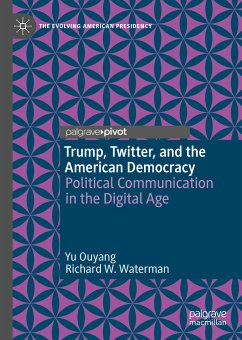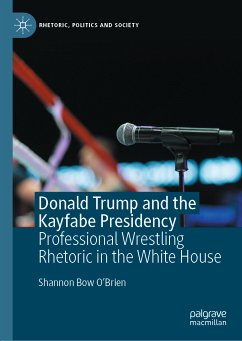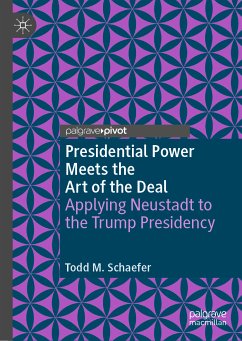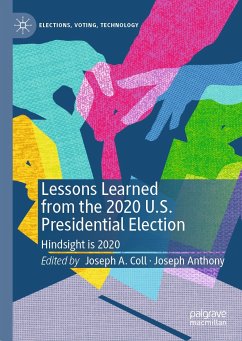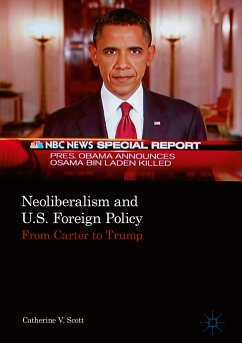
Talking Tough in U.S. Foreign Policy (eBook, PDF)
Executive Actions, National Emergencies, and Economic Sanctions
Versandkostenfrei!
Sofort per Download lieferbar
36,95 €
inkl. MwSt.
Weitere Ausgaben:

PAYBACK Punkte
18 °P sammeln!
This book examines how presidents utilize their emergency powers, as well as factors that influence presidential rhetoric in U.S. foreign policy and declarations of national emergencies. Although scholars have examined presidential rhetoric and the influence it has on various policy arenas, this project is the first to take a text analytic approach to assess the nature of presidential rhetoric in the area of U.S. foreign policy and declarations of national emergencies. Broadly, Ouyang and Morgan seek to understand (1) how presidents exercise their authority to declare national emergencies and ...
This book examines how presidents utilize their emergency powers, as well as factors that influence presidential rhetoric in U.S. foreign policy and declarations of national emergencies. Although scholars have examined presidential rhetoric and the influence it has on various policy arenas, this project is the first to take a text analytic approach to assess the nature of presidential rhetoric in the area of U.S. foreign policy and declarations of national emergencies. Broadly, Ouyang and Morgan seek to understand (1) how presidents exercise their authority to declare national emergencies and (2) how presidential rhetoric associated with each declaration of national emergencies changes over time. They begin by providing an overview of the development of presidential emergency powers. Then, they analyze the nature of presidential rhetoric in the context of U.S. foreign policy and national emergencies. Finally, they assess the strategic use of rhetoric in national emergency declarations and evaluate how this influences the implementation of economic sanctions stemming from these policies. In addressing these questions, this book helps to advance our understanding of U.S. foreign policy generally, national emergencies specifically, as well as the impact of presidential rhetoric on the policy selection and execution.
Dieser Download kann aus rechtlichen Gründen nur mit Rechnungsadresse in A, B, BG, CY, CZ, D, DK, EW, E, FIN, F, GR, HR, H, IRL, I, LT, L, LR, M, NL, PL, P, R, S, SLO, SK ausgeliefert werden.





